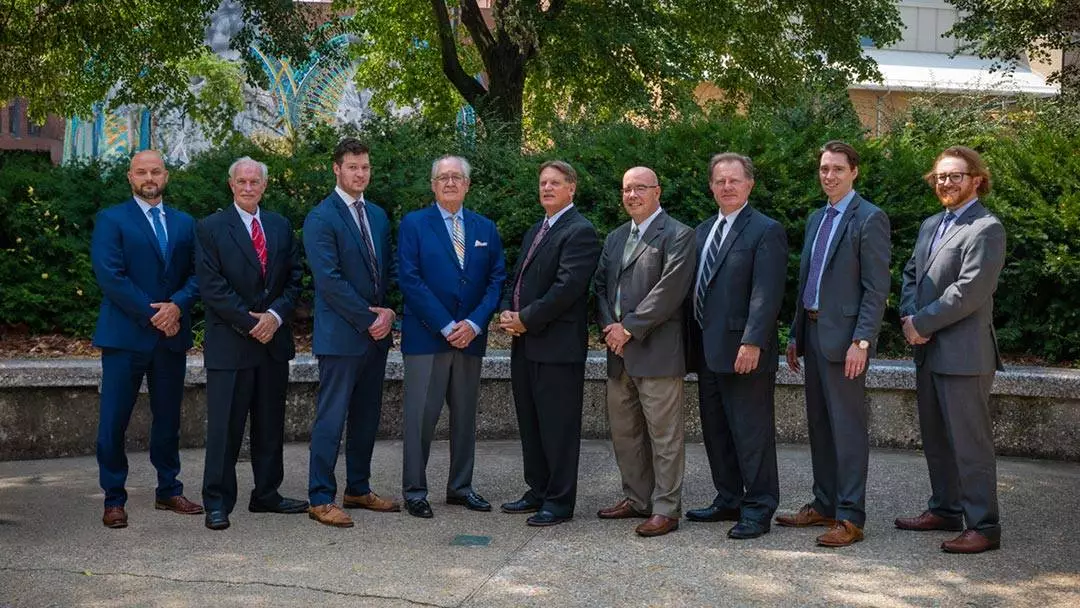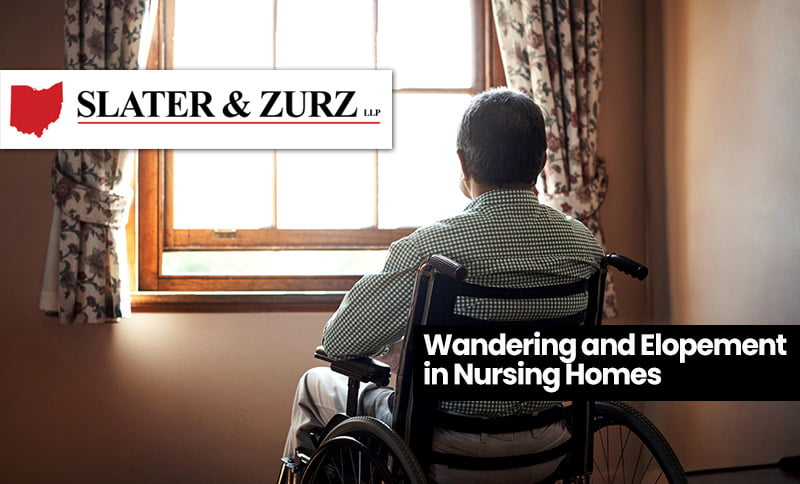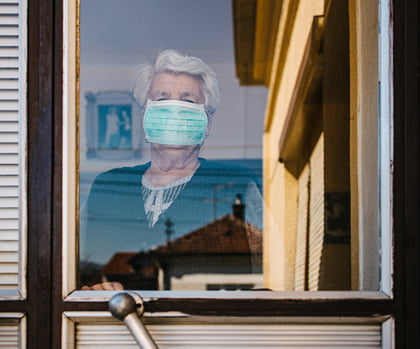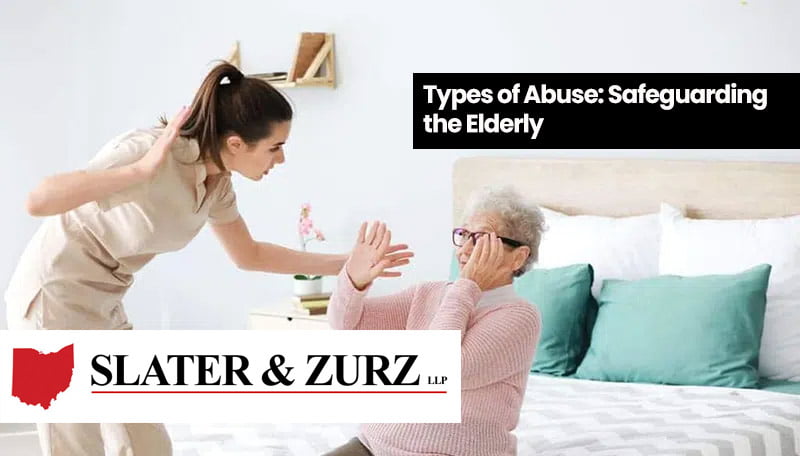In March 2020, the World Health Organization declared a pandemic after previously classifying the coronavirus disease (COVID-19) outbreak as a public health emergency of international concern. Since that declaration, the pandemic has spread around the world, leaving more than 1.5 million deaths in its wake.
Older adults are more susceptible to COVID-19 and have a higher mortality rate. When they contract the virus, they may have more complications and lingering effects, including heart disease, damage to the lungs and other organs, and various long-term health problems.
Nursing home residents are among the most vulnerable to COVID-19. In Ohio, new cases of COVID-19 are increasing daily. COVID-19 has become the number one cause of death in the United States. In May, 674 COVID-related deaths were linked to nursing homes. The first week of November saw an astonishing 2,975 nursing home residents and staff succumb to COVID-19.
These staggering numbers beg the question, “How safe is your loved one in a nursing home?” If you suspect that your loved one has contracted COVID-19—or died—as a result of the nursing home’s neglect, you should contact an experienced nursing home abuse attorney as soon as possible. At Slater & Zurz LLP, we can help you process the facts and determine the strength of your claim. We have extensive experience handling nursing home abuse and neglect cases and have a long track record of success. Call or email us to schedule a free consultation. We’ll listen to your story, answer your questions, and let you know how we think you should proceed. If we take your case, there is no fee unless we negotiate a favorable settlement or win in court for you.
Current laws should protect residents from abuse and neglect.
Ohio law defines nursing home neglect as “recklessly failing to provide a resident with any treatment, care, goods, or service necessary to maintain the health or safety of the resident when the failure results in serious physical harm to the resident.” Neglect includes failure to respond appropriately to an emergency. Abuse includes physical, psychological, and/or sexual abuse.
Nursing home neglect has long been a major concern not only for residents and their families but also for residence operators and staff members. Federal nursing home laws and programs have been in place since the 1960s, when the government implemented regulations to improve conditions nationwide. Today, nursing homes across the country must meet specific standards of care or face fines, penalties, or closure.
In 1986, a study commissioned by Congress found that nursing home residents were being neglected, abused, and given inadequate care. In 1987, the Nursing Home Reform Act was introduced to ensure that residents received quality care enabling them to maintain their optimal physical, mental, and psychosocial well-being.
The Act established required services, including periodic assessments and a comprehensive care plan for each resident; nursing, social, and rehabilitative services; pharmaceutical services; and dietary services.
The Act required that nursing homes maintain sufficient staff to meet residents’ needs.
The Act also established a “Residents’ Bill of Rights”:
The right to freedom from abuse and neglect;
- The right not to be physically restrained;
- The right to privacy;
- The right to be treated with dignity;
- The right to communicate freely;
- The right to participate in one’s care plan, and to be fully informed about any changes; and
- The right to express grievances without discrimination or reprisal.
Ohio has adopted a residents’ bill of rights, Ohio Revised Code §3721.13, which includes the right to a safe and clean living environment, the right to appropriate medical treatment and nursing care, the right to have clothes and bed sheets changed as needed, the right to private and unrestricted communications with family and others unless not medically advisable, and many other rights. These rights cannot be waived or surrendered under any circumstances.
COVID-19 poses special risks to nursing home residents.
In mid-March 2020, after the virus began sweeping through nursing homes across the country, the Centers for Medicare & Medicaid Services (CMS) announced measures to protect residents from COVID-19, ordering nursing homes to restrict visitors and communal activities. According to the Ohio Department of Health, the presence of COVID-19 in nursing homes, whether contracted by residents or the staff caring for them, must be identified in order to isolate the virus and contain its spread.
In October 2020, the Ohio Department of Health signed an order allowing nursing homes to permit indoor visitation provided that they meet certain health and safety requirements. Visits are limited to two visitors and are allowed a maximum of 30 minutes. Visitors must wear face coverings and maintain
social distancing. Visits must occur in areas separate from a resident’s room. Facilities must report visitation information online, including visitation status, hours, maximum time, and the number of visitors. Governor DeWine ordered regular testing of nursing home residents and employees as a condition of indoor visitation. Some facilities have suspended visitation indefinitely.
COVID-19 lawsuits: What can you expect?
According to the American Bar Association, most cases filed on behalf of residents so far involve claims that the nursing home’s staff did not disclose timely, truthful information about COVID-19 cases in the facility, infection control procedures, and the health status and care of the residents before they died.
Families are frequently angry about nursing homes’ lack of transparency and honesty in the days leading up to their loved ones’ deaths. Months after the residents’ deaths, many families still hadn’t been able to obtain their medical records.
Nursing homes’ lack of transparency is cause for concern. Calls may go unanswered, and many families may have no contact with their loved ones. In some cases, staffing is depleted due to COVID-19; often, employees are undertrained, emotionally strained, and overworked.
- In an Illinois suit, the complaint asserted that the facility was understaffed and failed to have staff wear personal protective equipment (PPE) or undergo COVID-19 tests to prevent transmission of the virus. After obtaining permission to visit, the resident’s daughter was shocked by what she saw: her mother’s room was filthy with dirty diapers on the floor; her roommate was coughing, unmasked, in the adjoining bed with no room divider. A week later, her mother died of COVID-19.
- In July, the children of an 87-year-old man who died of COVID-19 in April sued the California facility where he had resided. The family claimed that he was not adequately protected from the virus and that the facility was understaffed. A large number of residents and employees tested positive for COVID-19.
If you don’t have all the answers concerning how your loved one contracted COVID-19, you’re not alone. An elderly abuse attorney can uncover facts essential to determine what happened, why, and who was probably at fault. Here are some issues that may come up:
- Immunity laws. Members of Congress, as well as state legislators, have proposed laws that might limit your ability to recover money damages unless the nursing home or its staff acted intentionally or with reckless disregard for the risks posed by the home’s conduct.
- Past practices of the nursing home. Until the courts have addressed COVID-19 claims involving nursing homes, claims against a home with a poor regulatory history, failure to establish safety procedures like masking and isolation of infected residents, and a record of concealing the truth are more likely to succeed than cases against a home with a strong safety record.
- Causation. It may be challenging to prove that any conduct directly caused your loved one’s infection or death. A nursing home’s failure to isolate residents with COVID symptoms, failure to require masks, and failure to practice sanitation measures are evidence of neglect. Your attorney will still have to link that neglect to the harm that your loved one suffered.
Trust us to handle your nursing home COVID-19 case.
At Slater & Zurz, we take the rights and concerns of nursing home residents and their families seriously. If your loved one has suffered abuse or neglect while under the care of a nursing home, call or email our team to schedule a free consultation to discuss your case. One of our nursing home abuse lawyers will evaluate your claim and suggest the best path forward.
We’ve recovered more than $500 million for our personal injury clients, with a track record of winning 97% of the cases we handle. We’re here to serve your legal needs with compassion, determination, and the proven ability to win.





